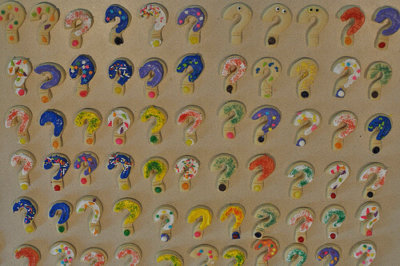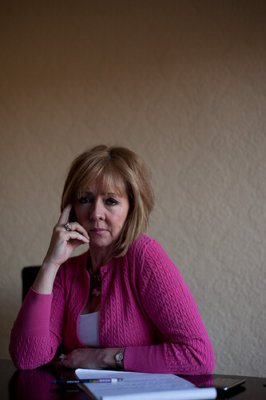7 Questions to Ask Yourself After Your First Therapy Session

By: Scott McLeod
Your first therapy session is over, and you went prepared. You asked all the essential questions you should ask a new therapist.
But you are still uncertain if he or she is the therapist for you.
It’s time to ask yourself some good questions.
7 Questions to ask after meeting a new therapist
The questions below are designed to help you decide if it was the therapist who is an issue, or other variables are at play that aren’t worth sabotaging a possible good match for.
It can be very helpful to sit down and journal these out over just ‘thinking’. Journalling can help short circuit your defences and allow you to be more honest with yourself.
1. Was the environment itself safe and comfortable?
Was the room your therapy session was held in safe, quiet, and clean? Then it has the essentials to carry out good therapy in.

By: Joe Houghton
Separate out things like not liking the building the office was in, or the transit ride there, or a painting on the wall. Obsessing over such things might just be your inner saboteur trying to ruin your plan to find the support you need.
2. Did the therapist seem a genuine person to me?
Try to drop any need here for the therapist to be a superhuman who has everything sorted out, or you’ll be looking for a therapist for a long time.
Instead of perfection, look for authenticity.
Did he or she seem comfortable in their skin? Confident? Did their personality seem consistent?
3. Was the therapist fully present?
There is perhaps nothing worse then paying for a therapy session and very clearly realising that the therapist does not like their job and is thinking of other things.
Did the therapist keep their focus on you? Did you feel listened to and acutely observed? Or was he or she looking about, fiddling, stressed, or talking about themselves too much?
4. Were they open to my questions?
A good therapist is happy to tell you about him or herself, including their education, experience, and how they feel they might be able to work with and help you.
Of course if you are rude or insulting to a therapist, a good one will set a strong boundary. They are there, after all, to show you healthy ways of being and relating.
5. Did they offer unrealistic promises, or did they just make me feel hopeful?

By: Robert Nunnally
If any therapist claims they can change your life, or implies they are the only one with the answers, check their credentials and be wary.
A professional therapist will make it clear to you they are not a miracle maker. But they will also give you a clear idea of the skills they have to slowly but surely help you move forward in life.
6. If I am generally wary of strangers anyway, did I feel more or less wary than usual?
The idea that you are going to walk into a room, meet a therapist for the first time, and totally trust them, is pretty illogical.
Most people who come to therapy have trust issues. So if you’ve never trusted anyone before, you will not trust your therapist, either. Look for the possibility of trust in the future. Could this be someone who, over time, you can relax and be yourself around?
7. How did I instinctively feel around him or her?
Research shows that clients make progress as much from the relationship with their therapist as the therapeutic intervention itself.
So you need to like the therapist.
If it’s just that they remind you of a parent or a teacher you didn’t like, give it time. These might be good starting points for personal discoveries, not reasons you can’t get along.
But if you just felt tense, annoyed, or not interested in him or her as a person, and it’s the way you usually feel with someone you can’t get along with, it might just not be a match.
So what do I do if I feel they aren’t the therapist for me?
If there is any chance you can grow to trust them, four sessions (the assessment plus three working sessions) is recommended.
If you really don’t feel it’s a match, send a clear and polite email or phone him or her. They might then be able to recommend a colleague they think would be more suitable, or suggest a different school of therapeutic thought that suits your issues.
Just be sure that you are not sabotaging getting help. Book a session with another therapist right away and try again. A good therapist takes time to find, but when you do find him or her, the changes you can see in your life make it well worth it.
Harley Therapy connects you with warm, professional, and highly trained London-based counselling psychologists and psychotherapists. Not in the UK? Try online therapy from the comfort of your home or office.
Have a question about attending a therapy session? Or want to share a personal experience with our readers? Share in our public comment box below.
Do I think I could learn, over time, to trust this person?




